Description
Wet chemical fire extinguishers
Wet chemical fire extinguishers are one of the less well-known extinguisher types. We explain all in our simple guide.
Summary: Wet chemical fire extinguishers are the only extinguisher recommended for use with cooking oil fires and are essential safety kit for professional kitchens.
Also known as:
• ‘Class F’ fire extinguishers
• ‘Class ABF’ fire extinguishers – some versions only
Wet chemical fire extinguisher uses:
• Fires involving cooking oils and fats, such as lard, olive oil, butter and vegetable oil (‘class F’ fires)
• Fires involving flammable solids, such as paper, wood, and textiles (‘class A’ fires)
Some wet chemical fire extinguishers are also cleared for use on class B fires – those involving flammable liquids, such as petrol, diesel, and paint. Check the label or ask your fire safety professional before using wet chemical extinguishers on this type of fire.
Do not use wet chemical fire extinguishers for:
• Fires involving flammable liquids (‘class B’ fires) UNLESS they are specifically cleared for this use
• Fires involving flammable gases, such as methane and butane (‘class C’ fires)
• Electrical fires
wet chemical fire extinguishers
How to identify a wet chemical fire extinguisher:
• YELLOW coloured label stating ‘Wet Chemical’
• Has a longer than usual hose with a ‘lance’ attachment
• Should be identified by an extinguisher ID sign fixed nearby – ‘Wet Chemical Extinguisher’
Sizes of wet chemical fire extinguisher available:
• 2 litre
• 3 litre
• 6 litre
How wet chemical extinguishers work:
The ‘chemical’ element of wet chemical fire extinguishers is potassium.
Potassium salts are sprayed out as a fine mist (gently, so as not to spread the burning oil or fat), and these react to create a soapy film on the surface of the substance on fire.
This smothers the fire, with the added benefit that the mist also creates a cooling effect.
Pros and Cons of wet chemical fire extinguishers:
Pros: the only fire extinguisher suitable for use with cooking fat and oil fires.
Cons: can produce toxic fumes areas should be ventilated if a wet chemical extinguisher has been used.
Who needs wet chemical fire extinguishers?:
Any premises with a professional kitchen or deep fat fryer should have a wet chemical fire extinguisher:
• Restaurants
• Fish and chip shops
• Burger bars
• Hotel kitchens

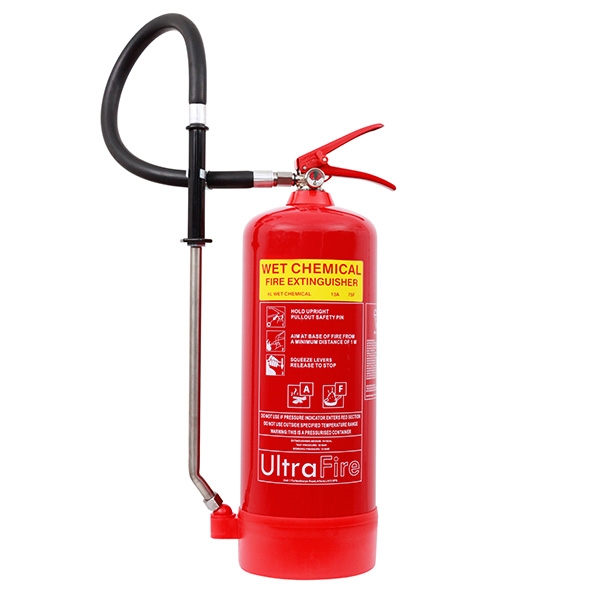
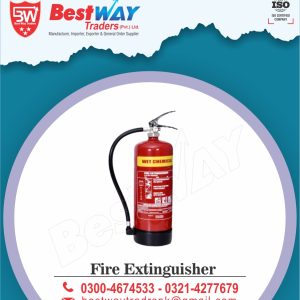
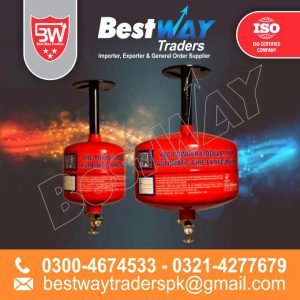
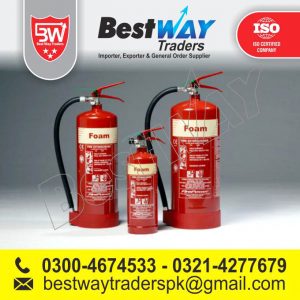
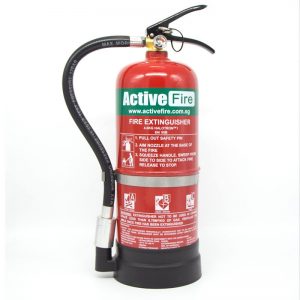
Reviews
There are no reviews yet.